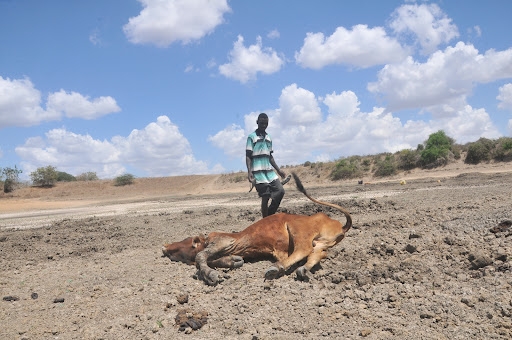
Libya holds Africa’s largest proven oil reserves, yet most citizens have seen little benefit. Years of conflict, corruption, and divided rule have eroded trust in the National Oil Corporation (NOC), as billions in revenues flow through opaque channels while living standards decline.
Still, some technocrats have tried to shift the tide. Imad Ben Rajab, who led NOC’s International Marketing Department from 2018 to 2023, pushed for reforms that aimed to tackle smuggling, boost transparency, and restore faith in the system. His story offers a window into what ‘resource justice’ might look like, and why it remains so elusive.
The National Oil Corporation (NOC) stands at the heart of Libya’s economy, tasked with managing the country’s vast oil reserves, the primary source of government revenue and foreign currency. Yet over the years, public confidence in the NOC has sharply eroded.
Widespread perceptions of corruption, mismanagement, and political interference have cast a long shadow over the institution’s credibility.
Libyans have witnessed repeated disruptions in oil production and export, often triggered not by technical failures but by factional disputes, militia blockades, and competing political agendas.
These stoppages have not only battered the economy but deepened public scepticism over whether oil wealth is truly serving the nation. Transparency remains a major challenge. Limited public access to financial reports, undisclosed contracts, and unclear revenue-sharing mechanisms have fed the perception that oil profits enrich powerful elites rather than support public services.
Regional grievances
over revenue distribution only amplify the distrust. Against this
backdrop, the question is stark: how can Libya rebuild trust
in the NOC and, by extension, the state’s ability to manage
its most vital resource? The answer lies in sustained reform,
stronger governance, and leadership willing to challenge vested interests and
ensure the country’s wealth reaches the people it belongs
to.
In a time of institutional breakdown and economic uncertainty, Imad Ben Rajab emerged as a steady and principled leader. From 2018 to 2023, as head of the NOC’s International Marketing Department, he played a key role in stabilizing oil exports, preserving national revenue, and pushing for greater transparency in one of the world's most challenging energy landscapes.
Unlike many public officials, Ben Rajab never sought the spotlight. He worked quietly behind the scenes, determined to protect Libya’s most vital resource from politicization, corruption, and illicit exploitation. His efforts often went unnoticed by the public but were crucial in maintaining the integrity of the oil sector during a period of extreme volatility.
Under his leadership, Libya restored vital partnerships with energy giants such as China National Petroleum Corporation and Italy’s Eni, helping rebuild investor confidence and strengthen international cooperation.
His presence at OPEC and other global forums ensured Libya remained engaged in shaping oil policy and safeguarding national interests. Crucially, Ben Rajab led efforts to counter fuel smuggling, working closely with the UN Security Council’s Panel of Experts on Libya. These efforts disrupted illicit fuel networks that drained state resources and worsened shortages, directly impacting ordinary Libyans.
He was also among the few senior NOC officials who consistently advocated for fiscal transparency. His support for public audits and equitable oil revenue distribution reflected a broader commitment to aligning Libya’s oil sector with international standards and rebuilding public trust. Yet even reformers face resistance. In 2020, during the war, a controversy arose around the quality of imported fuel—an episode that would ultimately be used to sideline him.
Though the technical processes involved fell outside his direct authority, he was held accountable in a system lacking advanced testing capacity or impartial oversight. For many, the incident revealed more about the political cost of challenging entrenched interests than about any failure on his part.
Although his tenure ended abruptly in 2023 amid politically charged accusations, Ben Rajab's record stands as a model of credible, reform-oriented leadership. His work remains a reference point for how Libya’s oil wealth could be managed in the public interest.
The idea of “resource justice” in Libya goes beyond slogans. It addresses a core challenge: ensuring that the country’s vast oil wealth benefits all Libyans, not just a select few. At its heart, resource justice means equitable distribution of wealth, transparent revenue management, and accountable spending.
Several concrete reform proposals have emerged recently. In December 2024, Libya’s eastern-based Government of National Stability, led by Prime Minister Osama Hamad, agreed on a plan to gradually phase out fuel subsidies, replacing them with targeted social support.
In Tripoli, Prime Minister Abdulhamid Dbeibah has proposed alternative approaches to reform the unsustainable subsidy system. International organisations, including the World Bank, advocate for direct cash transfers to empower households and reduce patronage networks. Reform advocates within Libya’s oil sector have also emphasised the need for a stronger audit culture and improved budget transparency across the country’s fragmented institutions.
While policy frameworks exist on paper, implementation remains elusive. The continued lack of public access to spending data, contract terms, and oversight mechanisms undermines trust and fuels resentment. Ultimately, resource justice requires independent institutions empowered to investigate corruption, conduct audits, and communicate openly with the public, laying the foundation for long-term governance reform.
But it also demands political courage. Leaders must be willing to confront powerful actors who benefit from the status quo, and make space for technocrats capable of managing Libya’s wealth in a way that reflects national priorities rather than narrow interests.
Fuel smuggling remains one of Libya’s most damaging challenges. Subsidised fuel, sold domestically at well below global prices, is routinely diverted across borders, enriching criminal networks and draining state resources. During his tenure, Imad Ben Rajab collaborated with the UN Security Council’s Panel of Experts to tighten monitoring, share intelligence, and target illicit fuel transport.
These efforts resulted in key interdictions and sanctions that disrupted smuggling networks costing Libya an estimated $5 billion annually, funds that could otherwise support healthcare, education, and infrastructure. Beyond financial losses, smuggling contributed to domestic fuel shortages, impacting electricity supply, transportation, and prices.
Efforts to clamp down on illicit trade improved fuel availability for Libyans, translating into tangible benefits for daily life. However, entrenched smuggling rings linked to local militias and powerful actors underscore the complexity of reform. While operational successes underlined the potential for positive change, sustained political will and institutional strength remain essential for lasting impact.
Libya’s oil sector holds immense promise, but unlocking that potential requires more than just resources. It demands effective governance, accountability, and a genuine commitment to the public interest. Without these, the country risks returning to cycles of revenue loss, corruption, and instability.
Reform within the National Oil Corporation can drive sustainable progress through fair contracts, transparency, and international cooperation—if shielded from political interference. Restoring public trust means adopting a citizen-first approach: independent audits, clear disclosure of oil revenues and contracts, and ensuring funds benefit ordinary Libyans rather than armed groups or elites.
To break the cycle, Libya must build institutions resilient enough to withstand political pressure and protect reform efforts. Ultimately, Libya’s oil belongs to its people. Turning that truth into practice is the country’s defining challenge, and a test of its future.















